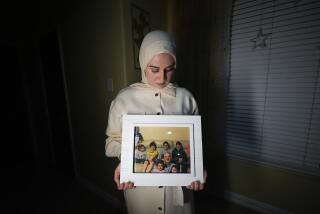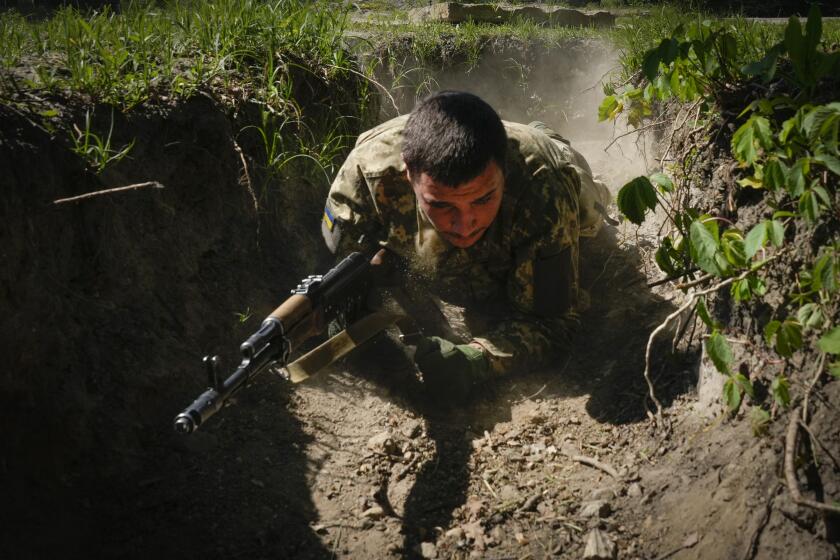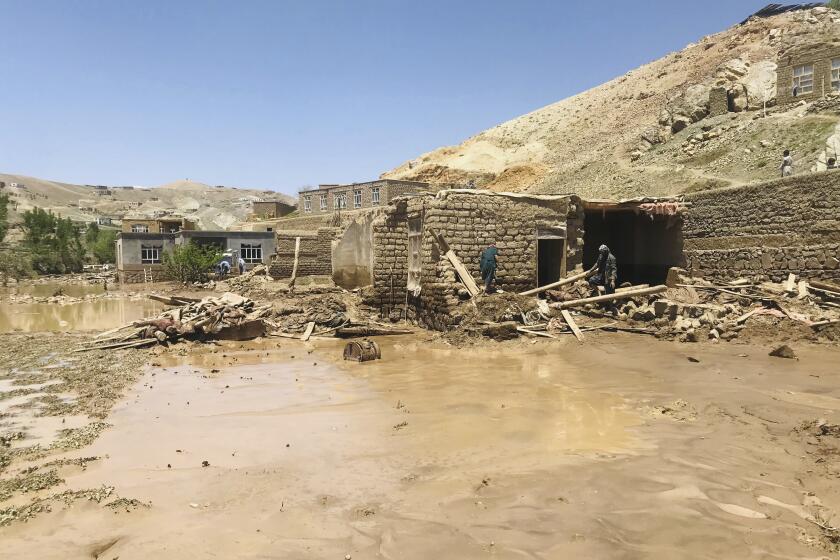Cease-fire called off in Ivory Coast
Forces loyal to the Ivorian president-elect recognized by the United Nations, Alassane Ouattara, called off a brief cease-fire and renewed attacks on the presidential residence of his rival on Wednesday, but they met with fierce resistance.
During heavy fighting, pro-Ouattara forces were driven back by hard-core loyalists of Laurent Gbagbo, who were dug in with heavy artillery around the presidential residence in the upscale Cocody neighborhood of the commercial capital, Abidjan.
Gbagbo’s desperate, last-ditch battle to hang on as president raised questions about whether the pro-Ouattara Republican Forces would be able to take him alive, as planned.
In the last four months, the country’s post-electoral impasse has gone from farcical to deadly.
It began with both men having themselves and their Cabinets sworn into office and progressed to a bloody fight for power in Abidjan’s streets, culminating in the surrender of Gbagbo’s top military officers and most of his forces Tuesday.
Ouattara was recognized by the U.N. and the African Union as president-elect after balloting monitored and certified by the U.N. in November, but Gbagbo insists that he won, claiming there was election fraud in Ouattara’s strongholds.
Although heavy weapons fire had stopped in most parts of the city by Tuesday, clashes continued Wednesday in some areas, including around Gbagbo’s residence, where he was believed to have retreated to an underground bunker.
Gbagbo doesn’t have a strong hand: He is surrounded by his enemies, isolated by world leaders, deserted by almost all of his military and deprived of his propaganda arm, RTI state television.
French officials have claimed that he was on the brink of stepping down twice in recent days.
An announcement Tuesday by French Foreign Minister Alain Juppe that Gbagbo was about to surrender was quickly contradicted by the besieged leader, who told French television that he had no intention of doing so, nor of recognizing his rival as president.
After he refused to surrender, pro-Ouattara forces announced a new assault to remove him by force.
“We are going to take Laurent Gbagbo out of his hole and hand him over to the president of the republic,” Sidiki Konate, spokesman for the pro-Ouattara forces, told news agencies.
A spokeswoman for Ouattara, Affoussy Bamba, also told France 24 television that the objective was to capture Gbagbo alive.
A U.N. spokesman told Agence France-Presse that negotiations on Gbagbo’s departure were continuing.
A Gbagbo advisor in Paris told Reuters that the attack Wednesday was backed by U.N. and French helicopters, a claim that could not be independently verified.
The battle in Abidjan had reached a turning point Monday when U.N. and French helicopters launched attacks against Gbagbo’s heavy artillery and military equipment at an arms depot, a military base, the presidential palace and his residence. The French accepted a U.N. request for military assistance.
U.N. Secretary-General Ban Ki-moon said the aim of the military attack was to protect civilians. But some African leaders have reacted with alarm at the U.N. military intervention.
Gbagbo’s one remaining card is the support he retains in the deeply polarized nation, having won 46% in November’s election, significantly less than Ouattara’s 54% but still a large chunk of the population.
Ouattara could have trouble stabilizing the country and integrating his volatile youth militias and hard-core supporters with the general public if Gbagbo is killed during the final standoff, analysts believe.
But Gbagbo and his inner circle may fear they risk prosecution for possible crimes against humanity if they surrender. There are such precedents: Former Liberian leader Charles Taylor agreed to step down and go into exile in Nigeria, only to be arrested and face prosecution in The Hague for war crimes.
Millions of residents remain trapped in their homes in Abidjan. Some ventured out Wednesday in search of food and water, but pro-Gbagbo militias and armed looters remained active in some neighborhoods.
The International Committee of the Red Cross in Abidjan warned of continued violence and looting in the city and called for both sides to allow humanitarian aid workers access to victims of recent warfare. It said in a statement that Abidjan’s hospitals were overwhelmed by people wounded in the fighting.
Aid workers were unable to reach victims and had been shot at, according to the Red Cross and the U.N. Office for the Coordination of Humanitarian Affairs.
Militias were raiding houses, businesses and the supply depots of humanitarian agencies, they said.
More to Read
Start your day right
Sign up for Essential California for news, features and recommendations from the L.A. Times and beyond in your inbox six days a week.
You may occasionally receive promotional content from the Los Angeles Times.






